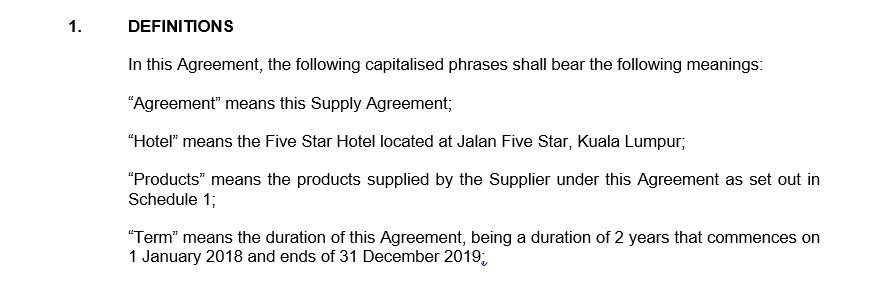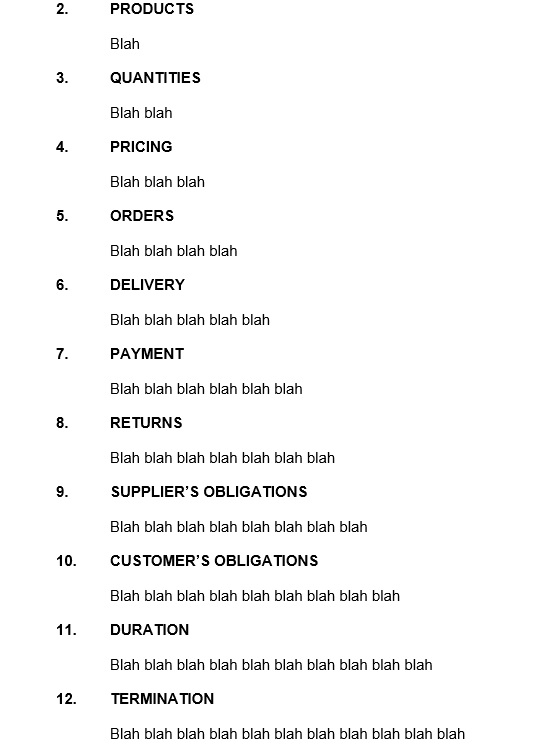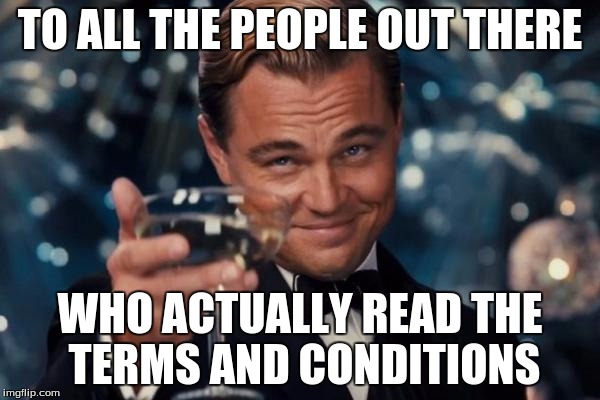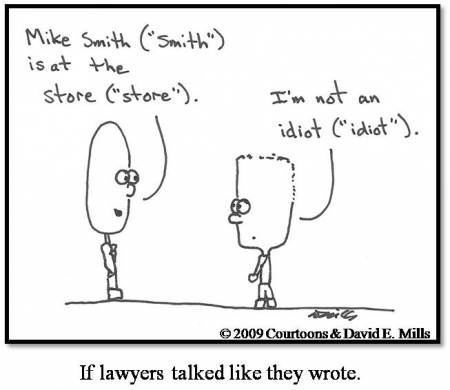

Contract
How to not fall off your chair when given a 50 page contract in Malaysia
about 7 years ago dineshsadhwaniThis article was written by Dinesh Sadhwani, a practicing advocate and solicitor of the High Court of Malaya.
Think about the last major transaction you may have entered into - for example to purchase a non-landed property. You probably had to sign a stack of contracts - the sale and purchase agreement with the developer / seller, deed of covenants for the building management's rules, the facility agreement with the bank to obtain financing to purchase the property, the security documents for the financing (deed of assignment, the power of attorney, etc) and possibly various other documents that you don't even remember.
You may have found the process overwhelming and, more significantly, not have fully understood what you read before signing - if you'd even read it at all.
If so, you are not alone. Many laypersons (and sometimes even lawyers!) face a problem when asked to read a contract. Today, let’s try to understand how to read a contract.
Let's start of with the basics, which is...
Why is reading and understanding the contract so important?
Although it is always good to have a lawyer review a contract before signing it, it is also important for you to read the document, understand the important terms (both commercial / non-legal and legal) and decide whether the terms are acceptable. A lawyer can help to explain the legal implications of the contract, but you cannot expect the lawyer to make a decision on your behalf whether the terms (especially the important terms) are acceptable.
At the same time, you may (especially in property rental or car purchase agreements) have encountered agents who will tell you that the contact is "standard" so "don't worry, sign only".
This takes us to the point about “standard” contracts.
There is no such thing as a "standard" contract
There is, strictly speaking, no such thing as a standard contract. There may be some contracts which are standard as these are prescribed by law, such as the sale and purchase agreement for properties that fall under the Housing Development (Control and Licensing) Regulations 1989, but these are (rare) exceptions rather than the norm.
While most contracts of the same type may be substantially similar (e.g. if you take two different tenancy agreements drafted by two different lawyers, you may find a lot of similarities), it is dangerous to assume that the contract in front of you today is similar to the previous contracts that you have been signing on the same subject matter. There are many reasons why contracts of the same type can be different. Some of them are:
The person who drafted the contract
In one sense, a contract is like any document, whether legal or not. If you have ever composed or received a love letter or, more likely today, a mushy e-mail or WhatsApp message, you will definitely agree that saying “I am madly in love with you” is not the same as saying “I am fond of you”
The same goes with contracts. If you are the tenant and could have your way, you will surely try to draft it as "The Tenant will try its best to pay the rent by the 10th day of every month" whereas if you are the landlord, you would surely want it to be drafted as "The Tenant must pay the rent by the 10th day of every month".
Factual circumstances
A contract must take into account the facts of the present case. "Facts" in this context refers to the circumstances that are specific to your case. Some of the differences between the present case and previous case may be subtle but significant – this in turn can cause some or many terms of the contract to be different.
Bargaining power
A party with more bargaining power will obviously try to insist on terms that are favourable to that party. Whether this is fair or ethical is another issue altogether and outside the scope of today’s discussion.
That being said, let's now take a look at what you can expect to find in any contract.
Here's what you should look out for in any contract
Let’s now start to discuss how to read and understand a contract - whether it may be 10, 20 or even 50 pages long. It may be easier to read a contract if you realise that most, if not all, contracts (whether or not of the same type) should usually comprise several major parts such as:
Parties
Not this kind, unfortunately. Image from WeKnowYourDreamsThis is probably the most basic yet important element of the contract. In order for a contract to exist, there must be parties who have agreed to be bound by it. In most cases, this should be a straightforward issue as it will be quite clear who are the parties to the contract. But there can be circumstances where this is not that straightforward.

Let’s say your company supplies food and beverages to the hospitality industry. One of your customers owns and operates a hotel known as Five Star Hotel (FSH). The owner and operator of the hotel is Awesome Hotel Sdn Bhd (AHSB). When signing contracts with this customer, should the contracting party / signatory be FSH or AHSB? The answer is AHSB. The reason is because FSH is only a trade / business name and not a legal entity that has capacity to enter into contracts. On the other hand, AHSB is a legal entity incorporated under the Companies Act and should have capacity to enter into contracts.
Introduction

The introduction to the contract (or sometimes also known as the recitals) is a good place to start if you are trying to understand the background to the contract. A well drafted introduction will explain the parties’ background / business and what do they want to do, or the purpose of the contract.
Definitions
Image from Courtoons
Before going further into definitions, some background explanation is necessary. Some of you may wonder what is it with lawyers and their obsession with quote marks and capitalised phrases. The answer is that this denotes that the phrase has been assigned a specific meaning in the contract.
 Going back to the Awesome Hotel example, there are likely to be a few concepts in the contract between your company and AHSB which will be repeated throughout the contract. If the contract is well drafted, there should be a definitions clause where each repeated concept is assigned a specific phrase. So, for example, the title of the agreement, duration, type of products and hotel branch / location are likely to be assigned capitalised phrases such as "Agreement", "Term", "Products" and "Hotel" respectively and placed in one clause.
Going back to the Awesome Hotel example, there are likely to be a few concepts in the contract between your company and AHSB which will be repeated throughout the contract. If the contract is well drafted, there should be a definitions clause where each repeated concept is assigned a specific phrase. So, for example, the title of the agreement, duration, type of products and hotel branch / location are likely to be assigned capitalised phrases such as "Agreement", "Term", "Products" and "Hotel" respectively and placed in one clause.
Then, each time there is a reference to these concepts anywhere in the contract, they are likely be referred to as "Agreement", "Term", Products" and "Hotel". This saves time and avoids the need to mention the whole concept in full across the contract. It also ensures that a concept used in the contract carries a consistent meaning across the contract.
Substantive clauses
If you are not able to read anything else in a contract, you should, at the very least, try to read and understand the substantive / important clauses. Try to think of substantive clauses as the basic or minimum provisions that a contract of that nature should have.

This very much depends on the type of contract and factual circumstances. Going back to the FSH example again - let’s say AHSB awarded your company a tender to supply products to AHSB for a two year period. You have to ask yourself - what are the important terms that should be in the contract that your company will sign with AHSB? Objectively speaking, there should be the following clauses: type of products supplied, quantities, pricing, process of placing orders, delivery, payment, returns, supplier’s obligations, customer's obligations, duration of contract and termination. These are of course non-exhaustive examples of the important clauses. There may be others.
Boiler plates
Boiler plate clauses are those provisions which you are likely to find in every contract regardless of the type (e.g. whether tenancy agreement, supply contract or sale and purchase agreement for land or shares). The common examples of boiler plate clauses are 'Confidentiality', 'Entire Agreement', 'Assignment', 'Time', 'Succession', 'Waiver', 'Costs', 'Governing Law', 'Dispute Resolution', 'Notices' and 'Counterparts'.
However, don't step into the trap of thinking that these are standard. Having said that, if you are really pressed for time (or exhausted after reading the substantive clauses!), you may want to just quickly go through them and try to pay attention to the key ones like 'Confidentiality', 'Costs', 'Governing Law' and 'Dispute Resolution' - again depending on what may be important to you.
Attachments / Appendix
A contract may sometimes set out certain commercial terms (e.g. products list, pricing, plans, drawings, etc) in an attachment (sometimes called schedule, appendix, annexure, etc) to the contract. The main body of the contract should make reference to the relevant attachment. It is important to read the attachments together with the relevant clauses in the body of the contract. Otherwise, it is like only watching the last thirty minutes of a two hour movie - you will not have head or tail!
Signing page
As with the parties section, this should be straightforward but it is important to ensure that the right party is named as the signatory.
If you signed the contract, you're bound by it!

It's very important to point out that once you've signed the contract, you're legally bound to those terms. And no, saying that you didn't read it or that you didn't understand it isn't an acceptable excuse or defence in court.
[READ MORE: What happens if you sign a contract without reading it?]
It is not possible to cover exhaustive ground when discussing contracts. However, knowing the typical structure of most contracts and how to read and understand them is better than blindly signing without understanding the terms - or more importantly, the embarrassment of falling off your chair.
This article is for informational purposes only and should not be taken as legal advice. Every situation is unique and dependent on the facts (ie, the circumstances surrounding your individual case) so we recommend that you consult a lawyer before considering any further action. All articles have been scrutinized by a practicing lawyer to ensure accuracy.


